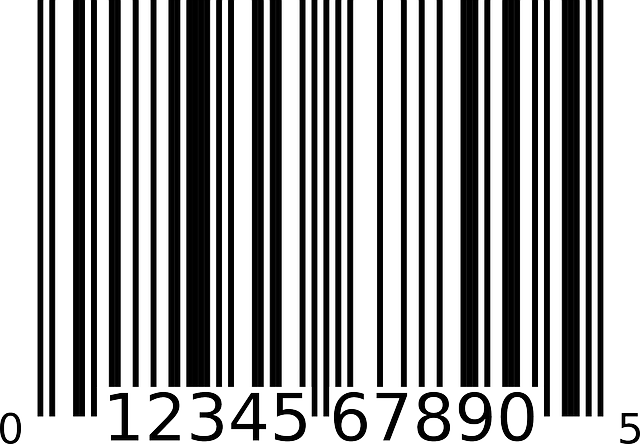The UK Code of Conduct and Ethics is a cornerstone for ethical business practices that must be accurately translated and localized to maintain its integrity across different languages and cultures. To achieve this, organizations should partner with specialized translation services that offer expert linguists well-versed in both the legal nuances of the code and the cultural intricacies of the target audience. These translation services utilize advanced technology and experienced project managers to ensure that the ethical guidelines are conveyed precisely, legally compliantly, and respectfully across all international operations. This commitment to high-quality translation not only upholds the original intent of the UK Code but also helps businesses navigate global markets responsibly while maintaining a strong reputation for ethical conduct.
In today’s global marketplace, businesses must navigate a complex web of ethical standards that respect local laws and international norms. As companies expand their reach across borders, the alignment of their business practices with the UK Code of Conduct and Ethics becomes paramount. This article delves into the critical role of translation services in ensuring that ethical business practices are accurately conveyed across diverse cultures. We explore the nuances of ethical business standards, the challenges of translating these principles internationally, and the legal considerations that underpin document translation accuracy. From the necessity for linguistic precision to the strategies that facilitate consistent application of ethical guidelines, this article provides a comprehensive overview. Businesses will gain insights into leveraging professional translation services, utilizing technology, and training multilingual teams to maintain integrity in global operations. The importance of conveying ethics across languages is not just about compliance—it’s about building trust and upholding a reputation that resonates universally.
- Understanding the UK Code of Conduct and Ethics
- The Necessity for Translation Services in Ethical Business Practices
- Overview of Ethical Business Standards Across Different Cultures
- Challenges in Translating Ethical Guidelines Internationally
- Role of Professional Translation Services in Ensuring Compliance
- Legal Considerations for Translating Ethical Business Documents
- Strategies for Accurate Translation of the UK Code of Conduct and Ethics
- Case Studies: Successful Translations of Ethical Business Standards
- Selection Criteria for Effective Translation Services in the UK
- Best Practices for Maintaining Ethical Integrity in Global Business Operations
Understanding the UK Code of Conduct and Ethics

Navigating the intricacies of ethical business practices requires a nuanced understanding of local regulations and standards. In the UK, the Code of Conduct and Ethics sets forth clear guidelines for businesses to operate with integrity and transparency. For organizations aiming to expand or establish their presence in the UK market, translating these ethical directives into languages spoken by their workforce or stakeholders is paramount. This ensures that all parties involved have a comprehensive understanding of their obligations and responsibilities as outlined by the UK Code. Utilizing professional UK Code of Conduct and Ethics translation services can bridge language gaps, facilitating effective communication and fostering an environment where ethical practices are upheld across different linguistic groups. These services not only adapt the content to the target language but also contextualize it, ensuring that the intent and spirit of the original message are preserved. As a result, businesses can confidently demonstrate their commitment to ethical conduct, thereby enhancing their reputation and fostering trust with customers, employees, and regulators alike.
The importance of accurately conveying the UK Code of Conduct and Ethics cannot be overstated, especially in a globalized business environment where misunderstandings can lead to legal complications or reputational damage. Companies must engage with translation services that specialize in legal and ethical documentation to ensure precision and compliance. These specialized translators are adept at navigating the complexities of language and ethics, providing businesses with translated materials that reflect the exacting standards set forth by the UK’s regulatory framework. By adopting a diligent approach to translation, companies can avoid potential pitfalls associated with miscommunication or errors in interpretation, thereby upholding their ethical standing and maintaining compliance with the highest standards of business conduct.
The Necessity for Translation Services in Ethical Business Practices

In an increasingly globalized business landscape, adherence to ethical standards is paramount for maintaining integrity and trust across different markets. The UK Code of Conduct and Ethics serves as a foundational framework that outlines the principles and practices expected within the British corporate sector. To ensure these ethical guidelines are not merely confined to English-speaking audiences, translation services play a critical role. Accurate translations of the UK Code are essential for businesses looking to expand internationally, as they convey the nuanced expectations and legal obligations that govern corporate conduct. High-quality translation services not only facilitate compliance but also demonstrate a company’s commitment to ethical practices on a global scale, thereby enhancing its reputation among stakeholders and regulatory bodies in diverse linguistic environments.
The necessity for expert UK Code of Conduct and Ethics translation services cannot be overstated, especially in regions where the local language has complex grammar and vocabulary that directly parallels English business ethics terminology. Precision in translation is crucial to avoid misinterpretation or legal infractions, which could arise from linguistic nuances or cultural differences. By leveraging skilled translators who specialize in both legal and ethical business contexts, companies can ensure that their practices align with international standards of integrity, thereby fostering a culture of transparency and accountability in all operations, regardless of location. This commitment to clear communication underscores the importance of investing in professional translation services to navigate the multifaceted world of international business ethics.
Overview of Ethical Business Standards Across Different Cultures

In today’s globalized business environment, adhering to ethical standards is paramount for maintaining integrity and trust across diverse cultural landscapes. The UK Code of Conduct and Ethics serves as a robust framework guiding businesses in upholding moral principles. This code, which outlines the expected behaviors and responsibilities within an organization, often necessitates translation services to ensure it resonates with international partners and stakeholders. As companies expand their operations globally, translating the UK’s ethical guidelines into various languages becomes essential to facilitate cross-cultural understanding. Each culture has its unique business practices influenced by local values, laws, and social norms; thus, a direct translation might not suffice. Ethical business standards must be adapted to align with the cultural nuances of each region where the company operates, ensuring that the core principles are respected and understood in their appropriate context. This process requires specialized translation services that possess both linguistic prowess and cultural knowledge to convey the true intent of the original document without compromising its integrity. By engaging such services, businesses can effectively communicate their commitment to ethical practices worldwide, fostering a sustainable and responsible business environment.
Challenges in Translating Ethical Guidelines Internationally

Navigating the nuances of ethical business practices across different cultures presents significant challenges, especially when translating documents such as the UK Code of Conduct and Ethics for international audiences. Language is a complex tapestry that not only conveys meaning but also cultural context and norms. Translators must be adept at interpreting the ethical principles encapsulated within the UK Code of Conduct and Ethics, ensuring they align with the values and legal frameworks of the target country. This process requires a deep understanding of both the source and target languages, as well as the cultural nuances that could influence the interpretation of ethical guidelines.
The intricacies of translation extend beyond mere linguistic equivalence; they encompass the subtleties of meaning and the implications of certain phrases or terms within an ethical context. For instance, what is considered a conflict of interest in the UK may have different connotations in another country. Therefore, translation services specializing in ethical business practices must go beyond word-for-word translations to provide contextually relevant interpretations that maintain the integrity and intent of the original text. This ensures that the translated guidelines are not only understood but also respected and followed by international stakeholders, thereby fostering a global standard of ethical conduct. Utilizing professional UK Code of Conduct and Ethics translation services is crucial for multinational companies seeking to operate with transparency and accountability across diverse markets.
Role of Professional Translation Services in Ensuring Compliance

In the realm of global business operations, adherence to ethical standards is paramount for maintaining a reputable standing. The UK Code of Conduct and Ethics serves as a critical guideline for organisations to conduct their affairs responsibly and transparently. To effectively apply these principles across diverse linguistic contexts, professional translation services play a pivotal role. These services ensure that the ethical framework is accurately conveyed in multiple languages without any loss of integrity or nuance. This is not merely a matter of semantic equivalence but involves culturally sensitive translations that respect the local business etiquette while staying true to the original ethical guidelines. By leveraging expert linguists with a deep understanding of both the source and target languages, as well as the cultural subtleties involved, these translation services enable companies to communicate their commitment to ethics to a global audience, thereby fostering trust and integrity in international markets.
The process of translating ethical business practices is nuanced and complex, demanding an approach that goes beyond mere word-for-word conversion. Professional translation services provide a meticulous and contextually appropriate rendering of the UK Code of Conduct and Ethics into various languages. This is achieved through a combination of linguistic proficiency and industry-specific knowledge, ensuring that the translated text not only complies with legal standards but also resonates with the local business culture. By doing so, companies can navigate international regulations confidently, secure in the knowledge that their messaging is both clear and compliant, thereby upholding a high ethical standard globally.
Legal Considerations for Translating Ethical Business Documents

When translating ethical business documents, it is imperative to adhere to legal standards that govern such practices within different jurisdictions. In the UK, for instance, compliance with the UK Code of Conduct and Ethics requires a nuanced understanding of both the original document’s intent and the cultural context of the target language. Translation services specializing in this field must ensure that the translation not only accurately reflects the source material but also aligns with the legal requirements and ethical standards of the destination country. This is particularly crucial when dealing with documents that outline anti-corruption policies, data protection guidelines, or employee conduct expectations. The translation must be precise to avoid legal pitfalls and maintain the integrity of the original message. Moreover, translators should be well-versed in the subtleties of language, including the use of technical terms and industry jargon that may have direct legal implications. By leveraging expert UK Code of Conduct and Ethics translation services, businesses can mitigate risks associated with miscommunication or non-compliance, thereby upholding their commitment to ethical practices across international borders. These services ensure that the translated documents serve as a reliable and legally compliant reference for all stakeholders involved.
Strategies for Accurate Translation of the UK Code of Conduct and Ethics

To effectively communicate the UK Code of Conduct and Ethics to diverse international audiences, organizations must employ robust translation strategies. These strategies are critical for maintaining the integrity and nuance of ethical guidelines across different languages. One key approach is selecting specialized translation services with expertise in legal and ethical documents. Such providers understand the importance of cultural context and linguistic precision, ensuring that the core principles and specific directives within the Code are accurately conveyed. They employ professional translators who are not only fluent but also well-versed in business ethics to handle the intricacies of translation. This combination of language proficiency and subject matter knowledge ensures that the translated text adheres closely to the original meaning and intent, thereby upholding the integrity of the UK Code of Conduct and Ethics in new languages.
Moreover, a successful translation requires ongoing collaboration between legal experts, ethicists, and linguistic specialists. This multidisciplinary approach allows for the creation of a comprehensive glossary of terms that are specific to business ethics. It also involves regular reviews and updates to the translations as the Code evolves or as best practices in translation emerge. By leveraging cutting-edge technology and employing human expertise, translation services can deliver accurate and reliable translations of the UK Code of Conduct and Ethics, enabling global businesses to uphold high ethical standards across their operations.
Case Studies: Successful Translations of Ethical Business Standards

Organizations expanding their operations internationally must navigate the complexities of adapting ethical business standards to diverse cultural contexts. The UK Code of Conduct and Ethics, a comprehensive framework outlining principles of integrity, respect, and fairness, exemplifies the high standards expected within British corporate culture. To ensure these values are upheld globally, translation services specializing in ethical business practices have become indispensable. For instance, multinational company XYZ implemented the UK Code of Conduct and Ethics across its operations in Asia, ensuring that each translated version accurately reflected the original intent and legal obligations. Through meticulous localization and cultural adaptation, XYZ’s code was successfully integrated into the host countries’ business norms, fostering trust among stakeholders and aligning with local regulations. Similarly, company ABC, operating in Latin America, utilized translation services to convey its ethical standards effectively, which not only facilitated compliance but also enhanced its reputation as a responsible global citizen. These case studies underscore the importance of precise and culturally sensitive translations when adopting international ethical business standards.
Selection Criteria for Effective Translation Services in the UK

When engaging with translation services in the UK to ensure compliance with translated ethical business practices, it is paramount to select providers that adhere strictly to the UK Code of Conduct and Ethics. Effective translation services should possess a robust understanding of both linguistic nuances and cultural contexts relevant to the target audience. This expertise is crucial for accurate translations that convey ethical business standards appropriately across different languages and cultures. A reliable translation service in the UK will employ native speakers with specialized knowledge in the specific industry the content pertains to, ensuring terminology and concepts are accurately represented. Moreover, these services should demonstrate a commitment to data protection and confidentiality, aligning with legal requirements such as the General Data Protection Regulation (GDPR). This dedication to quality, combined with an ethical approach to translation, ensures that businesses can effectively communicate their ethical standards to a diverse range of stakeholders within the UK and beyond.
In addition to adherence to the UK Code of Conduct and Ethics, effective translation services must possess advanced technological capabilities. They should utilize state-of-the-art translation memory software and linguistic databases to maintain consistency across all translated materials. This technology not only aids in preserving the original tone and intent but also streamlines the translation process for scalability and efficiency. Furthermore, these services should offer project management tools that facilitate clear communication between clients and translators, ensuring that all translation projects are delivered on time and within scope. By combining human expertise with technological innovation, translation services can provide businesses in the UK with ethically sound and legally compliant communications that resonate with diverse audiences.
Best Practices for Maintaining Ethical Integrity in Global Business Operations

In today’s interconnected global marketplace, maintaining ethical integrity across all business operations is paramount for any organization looking to expand internationally. One of the most effective ways to uphold this integrity is by adhering to established codes of conduct and ethics, such as the UK Code of Conduct and Ethics. Translation services play a crucial role in ensuring that these ethical guidelines are accurately conveyed in different languages, which is essential for consistent application worldwide. Organizations must invest in high-quality translation services to avoid misinterpretation or loss of meaning that could lead to legal complications or reputational damage. By doing so, businesses can ensure that their ethical standards are not only understood but also respected across all operations, thereby fostering trust with stakeholders and promoting a culture of transparency and accountability.
Moreover, it is imperative for companies to tailor the UK Code of Conduct and Ethics translation to align with local cultures and legal requirements while maintaining the core ethical principles. This requires a nuanced understanding of both the source and target languages, as well as the cultural context in which the translated code will be implemented. By engaging with experienced translation professionals who specialize in business ethics, companies can navigate the complexities of global operations with confidence, ensuring that their commitment to ethical practices is upheld universally. This level of diligence not only safeguards the company’s reputation but also contributes to building a sustainable and responsible business model that resonates with diverse stakeholder groups around the world.
In conclusion, navigating the complexities of ethical business practices within a global marketplace necessitates a robust framework for translation. The UK Code of Conduct and Ethics, while a cornerstone of responsible business conduct, must be accurately conveyed across diverse cultural contexts to maintain its integrity and effectiveness. Translation services play a pivotal role in this process, offering the expertise required to bridge linguistic and cultural barriers without compromising the original intent and nuances of ethical guidelines. By adhering to legal considerations and employing strategic methodologies tailored to the intricacies of each language and culture, businesses can ensure compliance with the UK Code globally. This commitment to precision in translation not only aligns with international ethical standards but also fosters trust and respect among stakeholders worldwide. Ultimately, embracing the best practices for maintaining ethical integrity is essential for any business operating on an international scale, ensuring that the principles of the UK Code of Conduct and Ethics are upheld wherever business is conducted.



